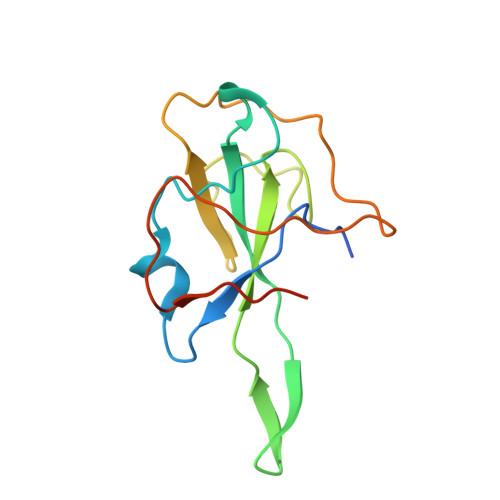Identification of novel broad-spectrum antiviral drugs targeting the N-terminal domain of the FIPV nucleocapsid protein.
Zhang, J., Fan, X., Wang, P., Liang, R., Wang, D., Xu, J., Zhang, D., Xie, Y., Liao, Q., Jiao, Z., Shi, Y., Peng, G.(2024) Int J Biol Macromol 279: 135352-135352
- PubMed: 39242012
- DOI: https://doi.org/10.1016/j.ijbiomac.2024.135352
- Primary Citation of Related Structures:
8K75 - PubMed Abstract:
Coronaviruses pose serious threats to human and animal health worldwide, of which their structural nucleocapsid (N) proteins play multiple key roles in viral replication. However, the structures of animal coronavirus N proteins are poorly understood, posing challenges for research on their functions and pathogenic mechanisms as well as the development of N protein-based antiviral drugs. Therefore, N proteins must be further explored as potential antiviral targets. We determined the structure of the NNTD of feline infectious peritonitis virus (FIPV) and identified 3,6-dihydroxyflavone (3,6- DHF) as an effective N protein inhibitor. 3,6-DHF successfully inhibited FIPV replication in CRFK cells, showing broad-spectrum activity and effectiveness against drugresistant strains. Our study provides important insights for developing novel broadspectrum anti-coronavirus drugs and treating infections caused by drug-resistant mutant strains.
Organizational Affiliation:
National Key Laboratory of Agricultural Microbiology, College of Veterinary Medicine, Huazhong Agricultural University, Wuhan, China; Key Laboratory of Preventive Veterinary Medicine in Hubei Province, The Cooperative Innovation Center for Sustainable Pig Production, Wuhan, China; Hongshan Laboratory, Wuhan, China.














